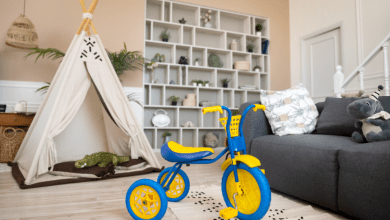
In today’s world, smart home systems are becoming an integral part of creating more energy-efficient, comfortable, and convenient living environments. With the use of intelligent technology, homes are able to adapt to their occupants’ needs, optimizing comfort, energy use, and security. However, to fully benefit from these advancements, regular upkeep is essential. Without routine attention, smart devices can lose their effectiveness, leading to higher energy consumption or even system failures. Proper care and attention to the various systems in your smart home, including heating and cooling, can ensure your investment continues to work for you.
Here are some key upgrades and practices that can help you maintain your smart home’s efficiency:
Understanding Smart Home Maintenance
Maintaining a smart home is about more than just updating apps or rebooting devices when they malfunction. It requires consistent monitoring and care to ensure that all connected systems work together seamlessly and efficiently. Routine checks for software updates, device performance, and physical components of smart systems can prevent minor issues from becoming costly repairs. Smart home maintenance involves keeping the heating, cooling, lighting, security, and entertainment systems in top working order. Regular care enhances system longevity, reduces energy consumption, and ensures that your home stays as efficient and comfortable as possible.
Maintaining Your Heating System for Peak Performance
Your home’s heating system plays a vital role in maintaining comfort during colder months, and its efficiency directly affects your energy bills. Without proper maintenance, heating systems can run inefficiently, consuming more energy than necessary. Regular checks of your heating equipment, such as filters, ductwork, and thermostat calibration, can significantly enhance performance.
For example, scheduling regular heater maintenance with experienced professionals can help avoid unexpected breakdowns. Some heating systems have integrated smart technology that allows remote temperature control and energy monitoring, which makes regular upkeep even more important. When you commit to taking care of your system, you maximize its ability to run at peak efficiency. For optimal performance, ensure your heating unit is properly maintained to prevent costly repairs down the road. Consider working with a professional to handle complex checks, including airflow inspection and the calibration of your heating system. These measures keep it functioning smoothly, extending its lifespan.
Optimizing Smart Thermostats for Energy Efficiency
Smart thermostats are designed to manage your home’s temperature based on your routines, improving comfort while lowering energy consumption. For maximum efficiency, it’s essential to program your thermostat to match your schedule. Adjusting temperatures while you’re away and ensuring comfortable conditions when you’re home. Additionally, integrating your thermostat with other smart systems, like lighting and security, can further enhance its ability to reduce energy use.
One of the simplest yet most effective ways to optimize your thermostat is by setting it to maintain a consistent, but not extreme, temperature range. Also, consider utilizing geofencing features to adjust settings automatically when you leave or return home, reducing unnecessary energy use when no one is around.
Keeping Smart Lighting Systems Efficient
Smart lighting systems are an excellent way to reduce energy consumption without compromising on the brightness and ambiance of your home. By switching to energy-efficient LED bulbs and taking full advantage of smart lighting features like motion sensors, dimming, and scheduling, you can make a significant impact on your home’s energy efficiency.
Routine maintenance of these systems includes checking the sensors for accuracy, replacing old or inefficient bulbs, and ensuring your smart lights are connected to your home’s central control system. Setting schedules based on daily patterns also allows your lights to automatically adjust when they are needed, keeping unnecessary power usage to a minimum.
Regular Maintenance of Smart Appliances
Appliances are crucial in a smart home environment, from refrigerators and washing machines to ovens and dishwashers. Many smart appliances are designed to help you monitor energy consumption and streamline daily tasks. Keeping them well-maintained not only extends their lifespan but also helps them operate at their most efficient level.
Start by performing basic cleaning tasks such as removing dust and dirt from vents, washing machine filters, or ensuring refrigerator seals are intact. Additionally, look for software updates or improvements from the appliance manufacturer that can improve functionality and efficiency. Routine checks and cleaning will keep these appliances running smoothly, saving energy and preventing unexpected malfunctions.
Ensuring Proper Functioning of Smart Security Systems
Smart security systems are designed to provide peace of mind by offering advanced features like motion detection, surveillance cameras, and smart alarms. However, just like any other smart home component, these systems require regular maintenance to stay effective.
Start by cleaning the cameras and checking the lenses for any obstructions. Ensure that motion sensors are correctly calibrated and test the system periodically to ensure it’s responding as expected. Keeping your system’s software updated is crucial, as security updates often fix vulnerabilities and enhance performance.
Regular checks also include verifying that your smart security devices are properly connected to your central system and can communicate with other devices, such as your smart door locks or lights. Proactive attention to these devices helps maintain their reliability and ensures your home stays secure.
Maintaining Smart Home Entertainment Systems
Smart home entertainment systems, including smart TVs, speakers, and streaming devices, require some upkeep to continue delivering quality performance. Regular maintenance helps prevent system slowdowns and ensures the longevity of your devices.
For televisions and streaming devices, ensure software and firmware updates are installed to keep your entertainment systems running smoothly. Clean the devices periodically, especially the vents and screens, to avoid overheating and dust buildup, which can cause performance issues.
If you use smart speakers or sound systems, verify that they are well-calibrated for optimal sound quality and connectivity. A few minutes of regular checks can prevent poor performance and provide the best viewing and listening experience.
Maintaining a smart home requires ongoing attention to the devices and systems that make it efficient and comfortable. From regular checks of heating and cooling systems to cleaning smart appliances and ensuring software updates, proper maintenance can help extend the life of your devices and optimize energy consumption. By staying on top of these tasks, you can enhance the convenience, efficiency, and safety of your smart home, ultimately saving both time and money. Remember, a small amount of upkeep goes a long way in maximizing the performance of your smart systems.




